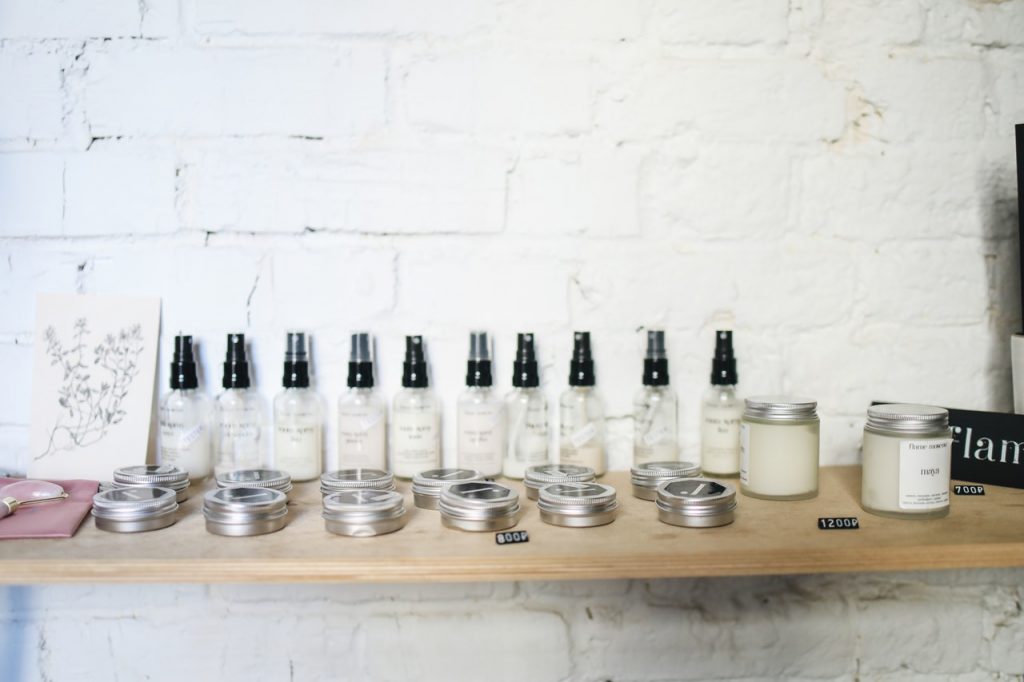The consumer movement towards clean beauty products
4 min read
The health and beauty industry is slowing succeeding in catering for consumer demands for clean and non-toxic beauty and personal care products. Over the past decade, there has been increasing consumer demand for safer beauty and health products and more regulation and accountability within the beauty industry. Several brands have been launched with clean beauty product lines to shift the onus from consumer to company when it comes to avoiding unsafe ingredients.
What is clean beauty?
Clean beauty refers to hair, makeup, skincare, perfumes and personal care products that are free from harmful chemicals and ingredients. There is a lot of debate as to what constitutes a ‘clean beauty’ product. Many believe that products cannot be counted as clean unless they are certified organic. Others have a softer approach to non-toxic beauty, outlining that products should be free of particular ingredients such as parabens, artificial fragrances, BHT, propylene glycol, DEA, MEA, TEA and formaldehyde.
Consumers are often oblivious to the dangers that some of these substances can pose. Parabens have been linked to breast cancer due to the hormone changing qualities it possesses. Doctors have found parabens in tumours of patients with breast cancer. Other chemicals such as Diethanolamine (DEA), Monoethanolamine (MEA) and Triethanolamine (TEA) have also been linked to cancer. These chemicals are used in shampoos, cleansers and moisturisers for their foaming properties. Butylated Hydroxytoluene (BHT) has been found to cause harm to wildlife in river and ocean ecosystems and can also cause kidney and liver problems in humans.
As many of these chemicals are still unregulated and widely used in products in countries around the world, consumers must be careful when choosing the goods they purchase.
How do ‘natural’ products differ form ‘organic’ products?
When reading the ingredients and labels on products, different claims will be made, such as ‘natural’, ‘organic’ or ‘certified organic’. These labels can often be misleading for consumers; therefore, it is essential to understand what these terms actual entail. ‘Natural’ usually means nothing, as this claim is not regulated. Companies can claim a product is ‘natural’ or ‘derived from natural ingredients’ and it can still contain harmful chemicals. ‘Organic’ is more heavily regulated and can be used if there are organic ingredients. For a product to be truly organic, it must be ‘certified organic’. In Australia, the product must be approved by Australian Certified Organic (ACO) to contain a minimum requirement of 95% organic ingredients to be certified organic. It is always recommended to read the ingredients list before purchasing any products.
Brands that enforce clean beauty
There are many brands that have been created as clean beauty ambassadors across the spectrum. Haircare brands that have removed harmful chemicals from shampoos, conditioners and hair treatments include 100% Pure, Andalou Naturals, Acure, Aveda, Mukti Botanique and Rahua. Brands to check out for clean fragrances include LaVanila, Recreation Bondi Beach and Vanessa Megan Pure Botanical Fragrance.
Skincare lines to purchase for safe and quality products include Drunk Elephant, Weleda, Eco by Sonya, Kora Organics and Pai. For makeup, some brands to try are Kjaer Weis, Inika, Ilia Beauty, RMS Beauty, Kosas and Lily Lolo. Victoria Beckham is also launching a luxury makeup line that supports clean beauty and sustainability.
Sustainability
Many companies that have incorporated clean beauty principles also have other ethical values when it comes to the environment and sustainability. With environmentally conscious and zero waste movements, brands are implementing more environmentally friendly packaging and sustainably sourced products. Kjaer Weis has created sustainable packaging by selling refills for their products. Lush promotes recycling their containers with price incentives when returning finished bottles. Face Halo was released as an ethical alternative to makeup wipes and cotton pads. In hair care, Aveda uses recycled materials to create their packaging. These companies have been a force for change and now create pressure for other brands to follow in their steps.
Animal Rights
Many clean beauty brands are vegan and do not believe in animal testing or using animal products, such as beeswax, in their goods. As China requires that beauty and hair products be tested on animals before they can be sold in stores, many of the larger beauty brands are not vegan as they choose to capitalise on the Chinese market. Consumers have boycotted brands such as Nars, with their decision to enter the Chinese market, and in turn, no longer be cruelty-free. This result shows the importance of cruelty-free products in the mind’s of consumers and many clean beauty brands realise this. Some of these brands that are 100% vegan include Nude by Nature, 100% Pure and Inika.
Clean Beauty for the Future
When thinking about the future, consumers are hopeful that the beauty industry will be more heavily regulated and that companies will put the welfare of consumers over economic interests. A shift towards more inclusivity in the industry has occurred and is expected to translate to the clean beauty market. With Fenty Beauty sparking the need for more shade and tone ranges, companies will have to keep up in providing for all different kinds of women.
As consumers are becoming increasingly aware of the dangers of certain chemicals found in their skincare, hair care and makeup, they are becoming more inclined to search for alternatives. It is expected that this point of difference will create more substantial profits in the long run for companies who choose to follow this movement.
Makeup department stores such as Mecca Maxima, Mecca Cosmetica and Sephora have advertised their clean beauty ranges, indicating the potential for companies to increase brand awareness through this partner association. Online platforms and blogs with significant followings are also supporting this movement, including Goop and Poosh. They promote healthy living and well-being, and attempt to educate the public about what is really going onto their skin. It will be exciting to see the progression of clean beauty in the years to come. Hopefully, one day consumers won’t even have to worry about product safety if better regulations and ethical values are installed into industry culture.




